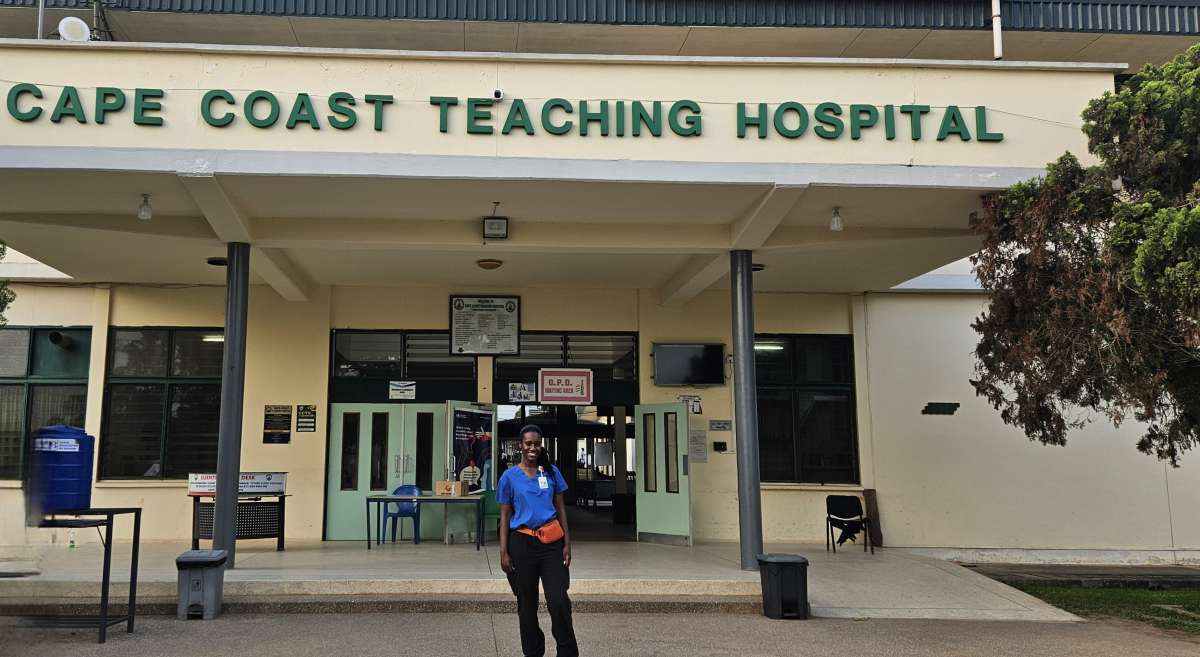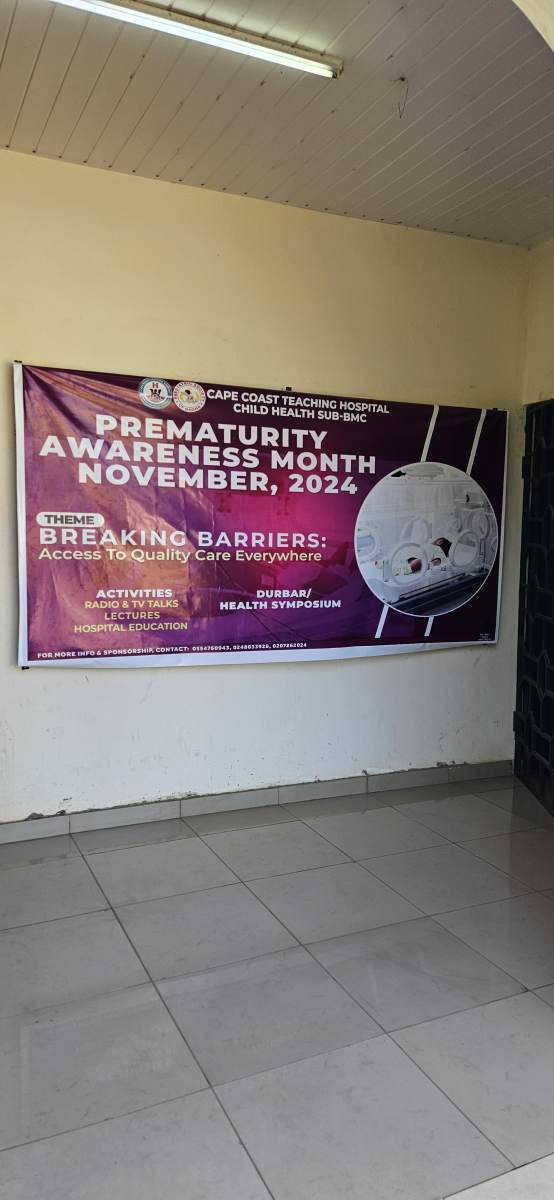My objective is to prevent the devastating effects that neonatal jaundice has on countless infants in Ghana. I will engage in global research to improve neurodevelopmental outcomes in babies by investigating what cultural factors contribute to the high prevalence of neonatal jaundice in Ghana. I desire to partner with Ghanaian institutions to render deeper awareness and community education in detecting jaundice at the onset. In so doing, infants are prevented from acquiring acute bilirubin encephalopathy, which often leads to irreversible brain damage and profound physical disabilities. My goal is to empower the Ghanaian community to recognize neonatal jaundice and maximize treatment strategies.
I have grown up living in the best of both worlds as a Ghanaian American. I was raised by parents who emigrated from Ghana, West Africa. Although I was born in the United States, my parents made sure to keep our Ghanaian heritage alive. I recall traveling to Ghana witnessing several people with profound disabilities, hoping that someone would spare them food or money on the roadside. As I pursued my training toward becoming a neonatologist, I could not help but wonder how many of those individuals had disabilities due to preventable childhood conditions like bilirubin encephalopathy.
Neonatal jaundice in Ghana is deemed as a significant cause of neonatal mortality and pediatric mortality in West Africa. It is severe jaundice that often leads to acute bilirubin encephalopathy and subsequently, cerebral palsy. Unfortunately, those who develop cerebral palsy often do not get diagnosed until several months later into their toddler years, and another few years later until they are able to receive some long-term healthcare services. Many times, these individuals do not get the services they need because of healthcare costs or lack of access to care.
Ultimately, I desire to focus my service on Ghana in this trip because of the great burden that the sequelae of neonatal jaundice places on the community at large. Moreover, I want to give back to my home country. I have been privileged in many ways, and it is my sense of duty to help the community from which my family originates.
Through this initiative, the Ghanaian community will learn how to prevent babies from suffering dangerous levels of jaundice and brain damage. Furthermore, the initiative may prevent newborns from needing treatment because of the community education that will be birthed from this endeavor.
The prevalence of neonatal jaundice in the Ghanaian community is multifactorial and yet a major factor is the lack of education or misinformation on jaundice. If this project addresses this significant factor, then the prevalence of neonatal jaundice and its sequalae will reduce over time.
Every May in Ghana, the Paediatric Society of Ghana hosts a month-long initiative called Neonatal Jaundice Awareness Month. As this project will lead to more phases of this research in other regions in Ghana, there will be a ripple effect of community partnership and education. Partnering with Paediatric Society of Ghana will be important in raising awareness and fostering education on a national level. This project will lead to participation in the annual Neonatal Jaundice Awareness month. Moreover, education and awareness will be achieved through a documentary featuring local dialects to bridge the gap between certain social determinants of health such as literacy and/or educational level.












I had the privilege to learn first-hand stories and experience from mothers and caregivers involved in raising newborns. Their stories helped my team to understand some ways that the healthcare community can empower caregivers to prevent the harmful effects of neonatal jaundice in their children and future children. Through our interactions, the mothers and caregivers received preventative newborn education to equip them. Their responses of gratitude and appreciation were overwhelming. Indeed, it was a humbling and thoroughly rewarding experience. Both I and the caregivers I interacted with look forward to future community empowerment and education on neonatal jaundice in Ghana.